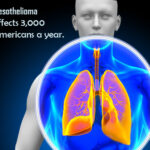Welcome to the comprehensive workers’ comp FAQ guide for California Longshore & Harbor Workers’ Compensation in 2023. Being aware of your protections and rights permitted by the Longshore and Harbor Workers’ Compensation Act (LHWCA) is a necessity if you are employed along the coast or engage in other maritime-related activities. With the LHWCA and associated laws like the Defense Base Act, Outer Continental Shelf Lands Act, and Non-Appropriated Fund Instrumentalities Act, this guide aims to address the Workers’ Comp FAQ that you must have knowledge about.
- What is Workers’ Compensation and what are workers’ compensation payments?
Workers’ Compensation is basically an initiative by California government Law aimed at offering needed healthcare and financial help to employees who become injured while on their job. This includes Longshore and Harbor Workers in California. This Financial support to injured workers, covering medical expenses and lost wages during recovery is generally referred to as workers’ compensation payments.
- What is the Longshore and Harbor Workers’ Compensation Act (LHWCA)?
A2: LHWCA is a federal law that provides workers’ compensation benefits to longshore, harbor, and maritime workers. It covers employees working in adjoining areas, such as docks, piers, and terminals.
- How Does LHWCA Differ from the Defense Base Act (DBA)?
This is the highly asked workers’ comp FAQ. Well, the Defense Base Act extends LHWCA benefits to civilian employees working on U.S. military bases abroad or under contract with the U.S. government. It offers similar protections but in an international context.
- What Benefits Does LHWCA Provide, does LHWCA Cover Injuries on the Outer Continental Shelf?
LHWCA provides compensation for medical expenses, disability, and vocational rehabilitation for injured workers. It also offers survivor benefits to dependents in case of a work-related fatality.
Also, the employees of certain non-appropriated fund instrumentalities of the U.S. government are eligible for LHWCA benefits. Further, LHWCA covers injuries that occur on the Outer Continental Shelf, ensuring protection for workers in offshore oil and gas operations.
- What Should I Do If Injured at Work?
Report the injury to your employer immediately and seek medical attention. Your employer then provides you with the necessary forms to file a workers’ compensation claim. Further, you need to fill carefully and submit the respective form to the claim authority.
- Where Can I Find a Longshore Workers’ Compensation Law Firm?
To find a knowledgeable attorney experienced in Longshore and Harbor Workers’ Compensation Law, search locally or online for reputable firms. Additionally, if you look forward to handing over your claim case to the best attorneys near you, then the team of expert attorneys at our law firm would be glad to assist you.
- What Is the Role of the United States Longshore and Harbor Workers Compensation Act?
The United States Longshore and Harbor Workers Compensation Act is the federal law that establishes and governs the LHWCA program, ensuring injured workers receive proper compensation and support.
- How Do I Claim Longshore Harbor Workers Compensation Act Benefits?
To claim LHWCA benefits, report the injury to your employer, complete the necessary forms, and follow the claims process outlined by your employer and the Department of Labor.
- Where Can I Learn More About the Longshore Act Workers’ Compensation?
For in-depth information and assistance with Longshore Act Workers’ Compensation, consult the U.S. Department of Labor’s Office of Workers’ Compensation Programs or reach out to a qualified attorney.
- how does the LHWCA program work for me if I get injured at work?
To ensure financial support throughout recuperation, the Longshore and Harbor Workers’ Compensation Act (LHWCA) offers maritime workers who sustain workplace injuries compensation and medical benefits.
Conclusion
We truly believe this collection of workers’ comp FAQs has assisted you well in gaining useful information about the LHWCA program. If your workplace is in the Harbour, on the Longshore, or in other maritime-related industries, your safety and well-being are critical. Recognizing your liberties is the first step toward ensuring a safe and protected future in your maritime profession with the assistance of Gaylord & Nantais law firm at (562) 561-2669 expert attorneys.










